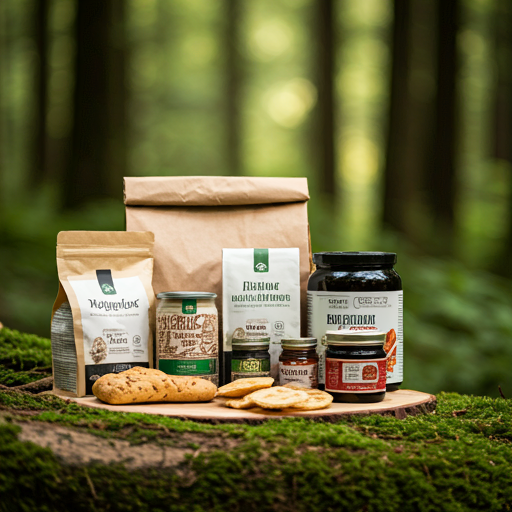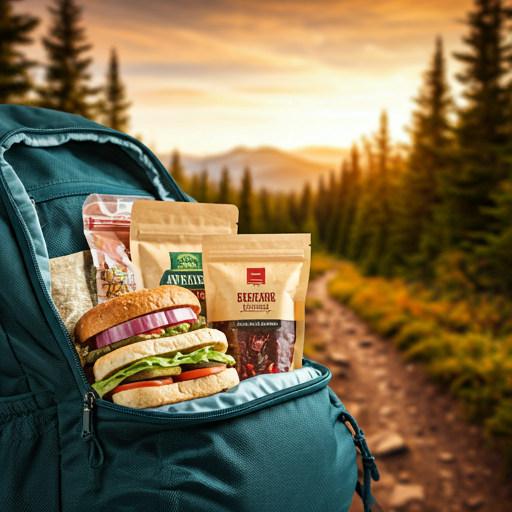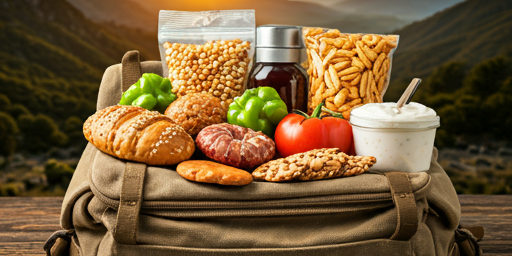Find the best to-go hiking foods that are both delicious and allergen-safe. Discover snacks that fuel your adventure without compromising on taste or safety. People love hiking because it allows them to enjoy nature, get some fresh air, and work out, which makes them feel good. The most important thing we can do to have a fun and safe hiking trip is to eat enough. People who go on dangerous hikes often forget that shellfish is a great food source for them.
You might be wondering if shellfish is a good thing to eat while you’re out walking. The answer is yes! Try oysters for a high-nutrient food. They will give you energy and make your walk food taste great. This article will discuss the many benefits of taking easy-to-carry foods on hikes, including allergen information, tasty shellfish recipes, and storage tips for dietary needs.

Benefits of hiking with portable food
The food you eat before going for a fun walk can give you a lot more energy, make you feel better, and make the rest of the day more fun. Here are some strong reasons to bring crab and other carefully chosen foods on your walk:
A lot of good nutrients
There are a lot of essential vitamins and minerals in shellfish, like shrimp, crabs, and mussels. They are also high in lean proteins. They keep you full all day without making you gain weight because they are low in calories and high in fiber.
Easy to reach
An easy way to pack light and small shellfish items is with crab meat in a can or dried mussels. This makes sure that you can eat healthy food without gaining weight.
Diverse Tastes
Adding crab to food tastes and feels great. It gives you a range of tastes that break up the bland food you usually eat while hiking. You can use them in recipes or as snacks.
In-built convenience
Shellfish that has already been vacuum-sealed and packed is easy to take on hikes because it doesn’t need much preparation. Whether you pick shrimp snacks or crab chips, these foods are easy to bring to camps.
Understanding trail food allergens
As you pack your bags for the trip, remember to think about people who might be allergic to food. Many people are allergic to shellfish; for some, it can be harmful. To help you deal with this important matter, here are some essential tips:
Identify Allergens
Seashells are divided into two main groups: crabs (like prawns and crabs) and mollusks (like clams, oysters, and mussels). Before you choose, get everyone in your hike group to agree on what they can and can’t eat for lunch.
Avoid cross-contamination
When making and packing food, avoid getting it on other things. If you handle shellfish, always use clean tools and containers so allergens don’t accidentally get into different foods.
Learn label reading
Always check the labels on pre-packed fish for allergens. Some products may contain additional ingredients that can worsen allergies.
Making sure that crab stays safe and fresh while it’s being stored
Shellfish should be stored in a certain way to keep them safe and fresh while you walk. These tips will help you eat meals that are good for you and safe:
Choosing Trash Cans
Food kept in bags or containers with lids will stay fresh and not go wrong. Ensure your items’ lids don’t let air or water in.
Make use of chillers or ice.
If you go for a long walk, you might want to bring ice packs to keep your fresh shrimp cool.
Make plans. Foods that are dried or canned
You can choose dried mussels, vacuum-sealed shrimp, or crab meat in a can that doesn’t need to be chilled and lasts a long time.
Avoid hot weather
Keep shellfish away from warm spots while hiking so bugs don’t grow. Please keep them in the pack’s shade and eat them as soon as possible while walking.
How to pack shellfish while taking into account food allergies and limits
People who go hiking with you should consider what your hiking friends can’t eat or are allergic to. Shellfish is a healthy choice. Remember these necessary things:
Allergy Comfort
As already said, shellfish intolerance can make you feel bad. It would be best to always talk to your group first to ensure everyone is on board with shellfish meals.
vegetarian and vegan alternatives
Those who are vegetarians or vegans should avoid eating shellfish. You can also get protein from nuts, beans, and plant-based protein bars. Nuts, beans, and plant-based protein bars provide protein.
Salt awareness
Cooked fish may be salty. Walkers should watch sodium intake. Read labels and choose low-sodium foods.

Conclusion
Some people avoid shellfish for religious or ethical reasons. Walking lunches with prawns taste better, are healthier, and offer more energy. The best way to improve your camping trip is to learn how to store things, keep up with allergen information, and try new foods.
Always consider people who can’t eat certain things and make sure that your food meets the needs of everyone you’re going with. With some planning, you can bring tasty food on walks that will make your time in nature even better. You’re now ready to go hiking. Enjoy the great outdoors and the tasty shellfish you’ll find!
FAQ’s
Is it OK for me to bring crab on my walk?
Bringing shellfish on a walk is safe and healthy if it is stored properly and you know of any allergies.
Which kind of shellfish are suitable for hiking snacks?
Because they are portable and lightweight, you can carry dried mussels, vacuum-sealed prawns, or canned crab meat. They are easy to transport and are packed with vital nutrients and fuel.
How can I maintain my crab’s freshness while walking?
Store shellfish in sealed bags with ice packs or coolers away from direct sunlight to prolong their freshness. Eating them early in the walk is preferable to get the finest flavor.
How do I proceed if I have a shellfish Allergy?
Inform the other party members if you have any dietary restrictions before you go out on the walk. Check for cross-contamination, and consider bringing alternative protein sources if some persons are intolerant to shellfish.
What snacks are OK for vegetarians and vegans to bring on hikes?
Vegetarians and vegans can consume plant-based protein bars, almonds, and beans, which are high in protein and ideal for outdoor sports, but they should avoid shellfish.
For More Tips And Tricks, Please Visit Our Homepage.








